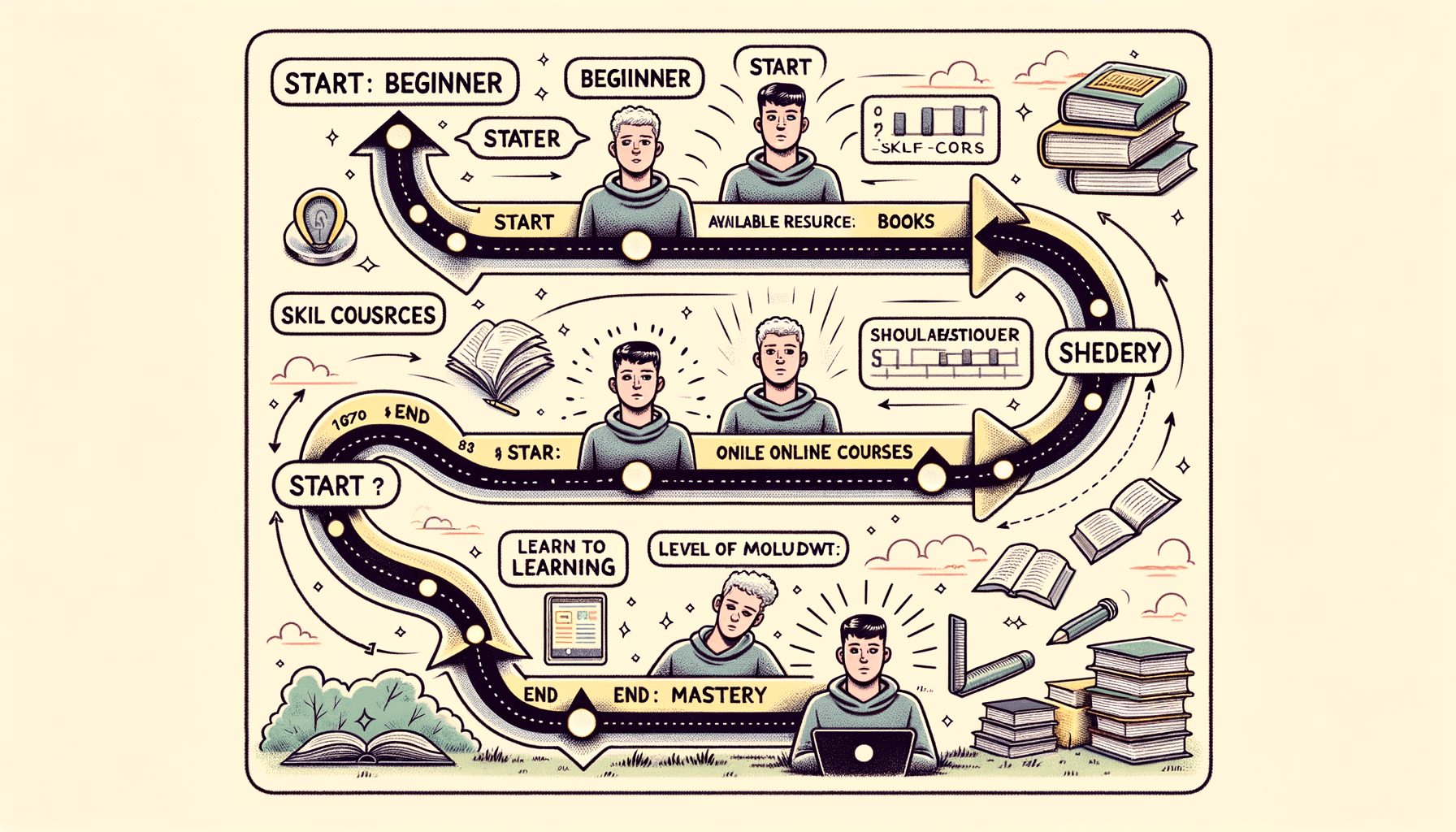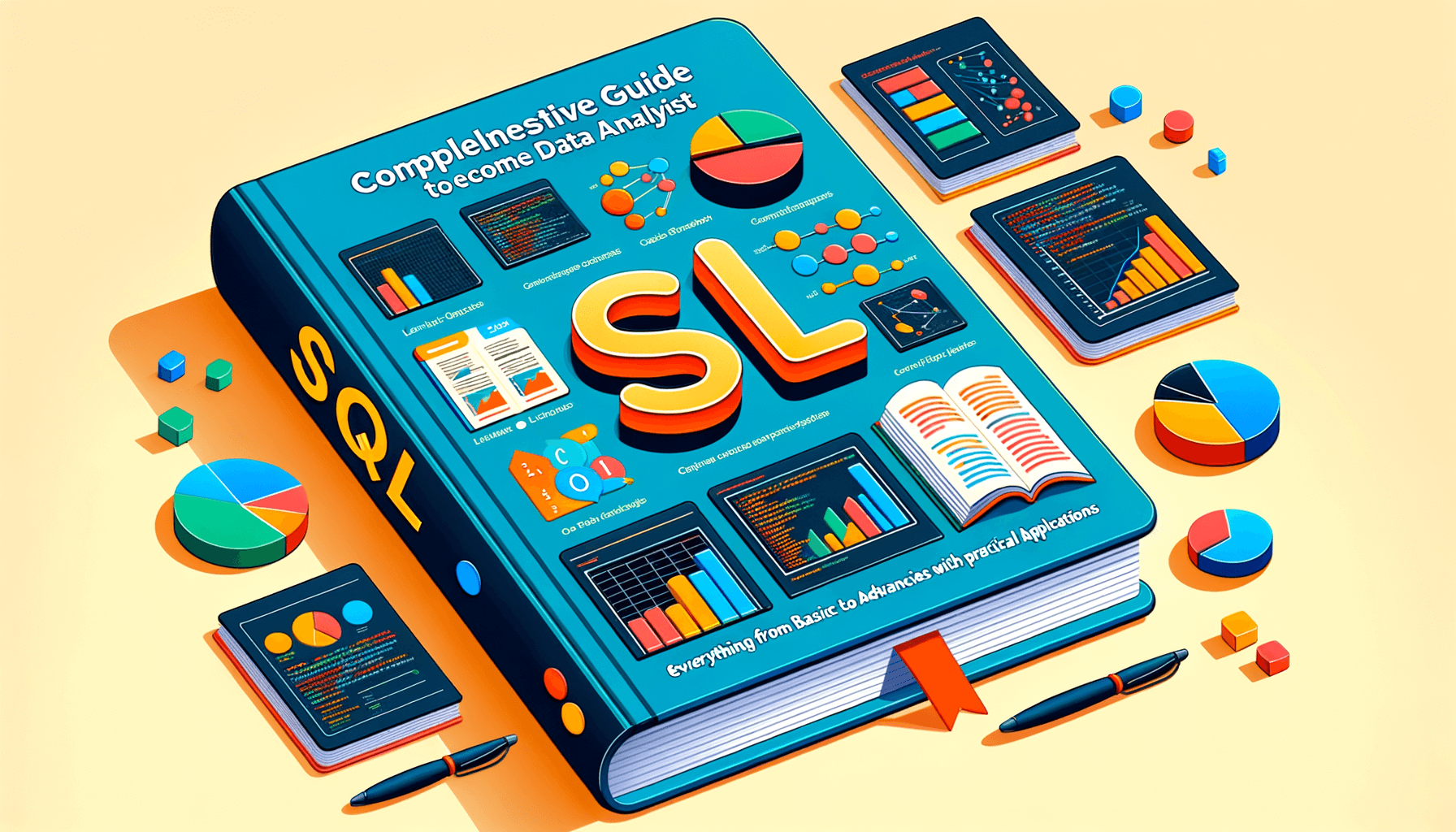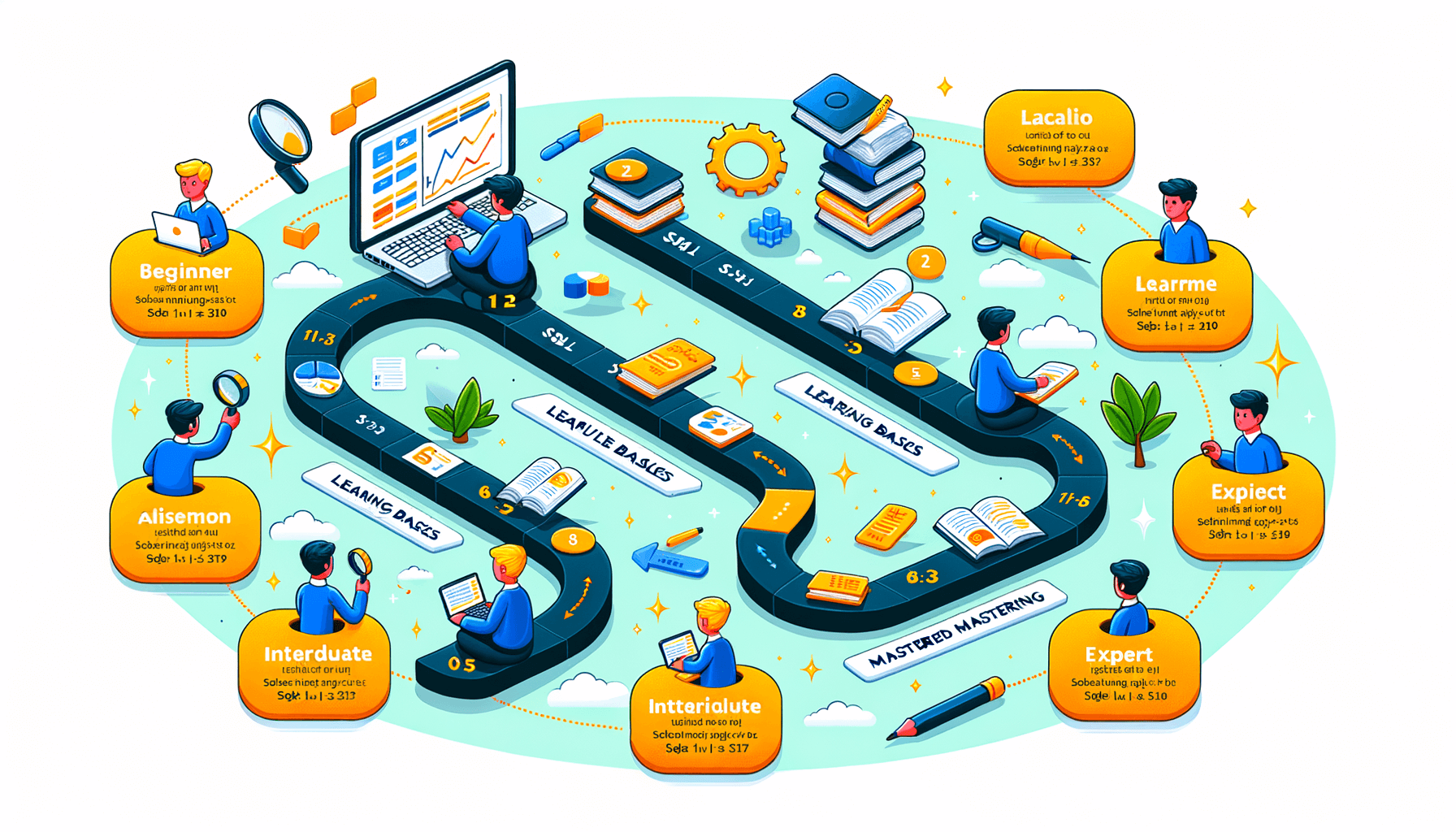A big variety of articles and resources

How Hard Is It to Learn SQL? A Comprehensive Guide
 Sia Author and Instructor
Learn SQL
Sia Author and Instructor
Learn SQL
9 minute read
SQL, or Structured Query Language, is a tool used to manage and interact with databases. Whether you're looking to start a career in data science or just want to understand how databases work, learning SQL can be very useful. This guide will help you understand how tough it is to learn SQL and offer tips on making the process easier.
Key Takeaways
- SQL is a language used to manage and interact with databases.
- Your background in programming can make learning SQL easier or harder.
- Understanding joins and subqueries can be tricky for beginners.
- Hands-on practice and real-world projects help in learning SQL more effectively.
- Advanced topics in SQL include performance tuning and database design.
Understanding the Basics of SQL
What is SQL?
SQL, or Structured Query Language, is a standard language used to communicate with databases. It allows us to create, read, update, and delete data stored in a database. SQL is essential for anyone working with data because it provides a way to manage and manipulate large datasets efficiently.
Core Concepts and Terminology
To get started with SQL, we need to understand some basic concepts and terms:
- Tables: These are the structures that hold our data, organized into rows and columns.
- Queries: These are the commands we use to interact with the data in our tables.
- Primary Keys: Unique identifiers for each row in a table.
- Foreign Keys: These link one table to another, helping to maintain data integrity.
Importance of SQL in Data Management
SQL plays a crucial role in data management. It allows us to handle large amounts of data quickly and accurately. Whether we're working in business, research, or technology, SQL skills are invaluable. Many online platforms, like sqlskillz.com vs w3schools.com, offer resources to help us master SQL basics at our own pace. This flexibility makes it easier for beginners to start learning without any upfront costs.
Understanding SQL is like having a key to unlock the potential of data. It empowers us to make informed decisions based on the information we can extract and analyze from databases.
Factors Influencing the Difficulty of Learning SQL
Prior Programming Experience
Our background in programming can greatly affect how hard it is to learn SQL. If we already know other programming languages, we might find SQL easier to pick up. However, if we're new to coding, SQL might seem more challenging at first.
Complexity of SQL Syntax
SQL has its own set of rules and structure, which can be tricky to master. The syntax can be confusing, especially when dealing with complex queries. Understanding these rules is crucial for writing effective SQL statements.
Availability of Learning Resources
The resources we have access to can also impact our learning journey. There are many books, online courses, and tutorials available, but finding the right ones can be overwhelming. Quality resources can make a big difference in how quickly we learn SQL.
The difficulty of learning SQL varies from person to person, depending on their prior experience, the complexity of the syntax, and the resources they use. By understanding these factors, we can better prepare ourselves for the learning process.
Common Challenges Faced by SQL Learners
Understanding Joins and Subqueries
One of the first hurdles we encounter is understanding joins and subqueries. These concepts are essential for combining data from multiple tables and performing complex queries. Grasping these ideas can be tough, but they are crucial for effective data management.
Mastering SQL Functions and Procedures
Another challenge is mastering SQL functions and procedures. These are powerful tools that allow us to perform a variety of tasks, from simple calculations to complex data manipulations. The mastering postgresql performance and query optimization course offers practical SQL training with real-world problem-solving, hands-on projects, and expert-led instruction for career advancement in data management.
Optimizing SQL Queries for Performance
Optimizing SQL queries for performance is another common challenge. Poorly optimized queries can slow down the entire database, making it difficult to retrieve data quickly. Learning how to write efficient queries is essential for maintaining a fast and responsive database.
Overcoming these challenges requires patience, practice, and a willingness to learn from mistakes. With the right approach, we can master SQL and use it effectively in our data management tasks.
Effective Strategies for Learning SQL
Hands-on Practice and Real-world Projects
To truly grasp SQL, we need to dive into hands-on practice. Working on real-world projects helps us understand how SQL is used in actual scenarios. Practice makes perfect, and the more we practice, the better we get. We can start with simple queries and gradually move to more complex ones.
Utilizing Online Courses and Tutorials
There are many online courses and tutorials available that can help us learn SQL. These resources often provide step-by-step instructions and examples that make learning easier. We should take advantage of these resources to build a strong foundation in SQL.
Participating in SQL Communities and Forums
Joining SQL communities and forums can be very beneficial. These platforms allow us to ask questions, share knowledge, and learn from others' experiences. Engaging with a community can provide us with support and motivation to keep learning.
Consistent practice and active participation in learning communities are key to mastering SQL.
Assessing Your Progress in SQL Learning
Setting Achievable Learning Goals
When learning SQL, it's important to set clear and achievable goals. Start with small, manageable tasks and gradually increase the difficulty. This approach helps you stay motivated and track your progress effectively. Setting realistic goals ensures that you don't get overwhelmed and can celebrate small victories along the way.
Using Practice Tests and Quizzes
Practice tests and quizzes are excellent tools for measuring your SQL knowledge. They provide immediate feedback and highlight areas where you need improvement. Regularly taking these tests can help you identify your strengths and weaknesses, allowing you to focus your efforts on areas that need more attention.
Seeking Feedback from Experienced SQL Users
Getting feedback from experienced SQL users can be incredibly valuable. They can offer insights and tips that you might not find in textbooks or online courses. Join SQL communities or forums where you can ask questions and share your work. This interaction not only helps you learn but also keeps you engaged and motivated.
Remember, learning SQL is a journey. Take it one step at a time and don't be afraid to seek help when needed. With dedication and the right resources, you'll be able to fit data & SQL skills into your busy life and master the basics at your own pace.
Advanced Topics in SQL for Further Learning
Exploring Advanced SQL Functions
As we dive deeper into SQL, we encounter advanced functions that can greatly enhance our data manipulation capabilities. These functions allow us to perform complex calculations and data transformations with ease. Mastering these functions can significantly improve our efficiency in handling large datasets.
Understanding Database Design and Normalization
A well-designed database is crucial for efficient data management. In this section, we explore the principles of database design and normalization. By understanding these concepts, we can create databases that are both efficient and easy to maintain. This knowledge is essential for anyone looking to advance their SQL skills.
Learning About SQL Performance Tuning
Performance tuning is an important aspect of working with SQL. It involves optimizing queries to ensure they run as efficiently as possible. This can include indexing, query optimization, and other techniques. By learning about performance tuning, we can ensure our SQL queries are both fast and reliable.
As we continue to learn and grow in our SQL journey, it's important to remember that advanced topics like these are what set apart proficient users from true experts. Embracing these challenges will lead to a deeper understanding and greater mastery of SQL.
Dive into advanced SQL topics and take your skills to the next level. Our courses are designed to help you master complex SQL queries and database management. Whether you're a beginner or looking to refine your expertise, we have something for everyone. Visit our website to explore our course catalog and start learning today!
Conclusion
In summary, learning SQL can be both challenging and rewarding. While the initial stages may seem daunting, with practice and persistence, anyone can master the basics. The key is to start with simple queries and gradually move to more complex tasks. Remember, SQL is a powerful tool for managing and analyzing data, and gaining proficiency in it can open many doors in the tech world. So, keep practicing, stay curious, and don't be afraid to seek help when needed. With time and effort, you'll find that SQL becomes a valuable skill in your toolkit.
Frequently Asked Questions
What is SQL and why is it important?
SQL stands for Structured Query Language. It's used to manage and manipulate databases. It's important because it helps in organizing and retrieving data efficiently.
Is SQL hard to learn for beginners?
It depends. If you have some programming background, it might be easier. But even if you're new, with the right resources and practice, you can learn it.
What are the basic concepts I need to know in SQL?
You need to know about tables, rows, and columns. Also, understanding basic commands like SELECT, INSERT, UPDATE, and DELETE is crucial.
Why do people struggle with SQL joins and subqueries?
Joins and subqueries can be tricky because they involve combining data from multiple tables. It takes practice to understand how they work.
What are some good ways to practice SQL?
Hands-on practice is key. Work on real-world projects, use online courses, and participate in SQL forums to get better.
How can I know if I'm getting better at SQL?
Set small learning goals and take practice tests. Also, ask for feedback from people who are experienced in SQL.
Related Articles

How Long Does It Take to Learn SQL?
9 minute read

How should I learn SQL to become a data analyst?
14 minute read





